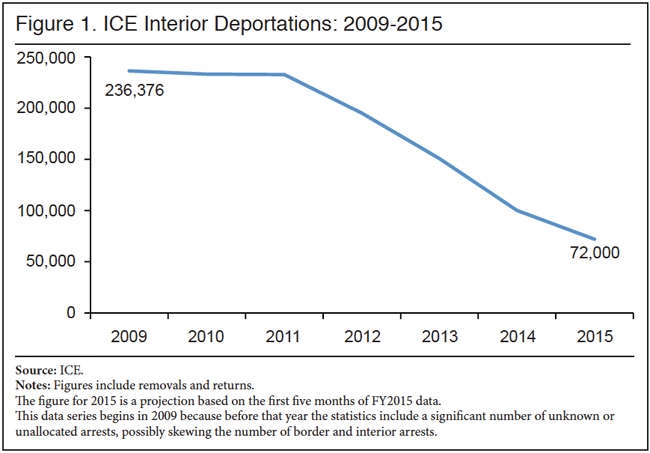How the Pentagon is Preparing for a Tank War With Russia
When Lt. Gen. H.R. McMaster briefs, it’s like Gen. Patton giving a TED talk — a domineering physical presence with bristling intellectual intensity.
DefenseOne: These days, the charismatic commander of the U.S. Army’s Training and Doctrine Command is knee-deep in a project called The Russia New Generation Warfare study, an analysis of how Russia is re-inventing land warfare in the mud of Eastern Ukraine. Speaking recently at the Center for Strategic and International Studies in Washington, D.C., McMaster said that the two-year-old conflict had revealed that the Russians have superior artillery firepower, better combat vehicles, and have learned sophisticated use of UAVs for tactical effect. Should U.S. forces find themselves in a land war with Russia, he said, they would be in for a rude, cold awakening.“We spend a long time talking about winning long-range missile duels,” said McMaster. But long-range missiles only get you through the front door. The question then becomes what will you do when you get there.
“Look at the enemy countermeasures,” he said, noting Russia’s use of nominally semi-professional forces who are capable of “dispersion, concealment, intermingling with civilian populations…the ability to disrupt our network strike capability, precision navigation and timing capabilities.” All of that means “you’re probably going to have a close fight… Increasingly, close combat overmatch is an area we’ve neglected, because we’ve taken it for granted.”
So how do you restore overmatch? The recipe that’s emerging from the battlefield of Ukraine, says McMaster, is more artillery and better artillery, a mix of old and new.
Cross-Domain Fires
“We’re out-ranged by a lot of these systems and they employ improved conventional munitions, which we are going away from. There will be a 40- to 60-percent reduction in lethality in the systems that we have,” he said. “Remember that we already have fewer artillery systems. Now those fewer artillery systems will be less effective relative to the enemy. So we need to do something on that now.”
To remedy that, McMaster is looking into a new area called “cross domain fires,” which would outfit ground units to hit a much wider array of targets. “When an Army fires unit arrives somewhere, it should be able to do surface-to-air, surface-to-surface, and shore-to-ship capabilities. We are developing that now and there are some really promising capabilities,” he said.
While the full report has not been made public, “a lot of this is available open source” said McMaster, “in the work that Phil Karber has done, for example.”
Seven platoons from 6 NATO nations (Denmark, Germany, Italy, Poland, Slovenia and the United States) are participating in the Strong Europe Tank Challenge at Grafenwoehr Training Area, Germany May 10-13, 2016.
Karber, the president of the Potomac Foundation, went on a fact-finding mission to Ukraine last year, and returned with the conclusion that the United States had long overemphasized precision artillery on the battlefield at the expense of mass fires. Since the 1980s, he said last October, at an Association for the United States Army event, the U.S. has given up its qualitative edge, mostly by getting rid of cluster munitions.
Munitions have advanced incredibly since then. One of the most terrifying weapons that the Russians are using on the battlefield are thermobaric warheads, weapons that are composed almost entirely of fuel and burn longer and with more intensity than other types of munitions.
“In a 3-minute period…a Russian fire strike wiped out two mechanized battalions [with] a combination of top-attack munitions and thermobaric warheads,” said Karber. “If you have not experienced or seen the effects of thermobaric warheads, start taking a hard look. They might soon be coming to a theater near you.”
Karber also noted that Russian forces made heavy and integrated use of electronic warfare. It’s used to identify fire sources and command posts and to shut down voice and data communications. In the northern section, he said, “every single tactical radio [the Ukrainian forces] had was taken out by heavy Russian sector-wide EW.” Other EW efforts had taken down Ukrainian quadcopters. Another system was being used to mess with the electrical fuses on Ukrainian artillery shells, ”so when they hit, they’re duds,” he said.
Karber also said the pro-Russian troops in Donbas were using an overlapping mobile radar as well as a new man-portable air defense that’s “integrated into their network and can’t be spoofed by [infrared] decoys” or flares.
Combat Vehicles and Defenses
The problems aren’t just with rockets and shells, McMaster said. Even American combat vehicles have lost their edge.
“The Bradley [Fighting Vehicle] is great,” he said, but “what we see now is that our enemies have caught up to us. They’ve invested in combat vehicles. They’ve invested in advanced protective systems and active protective systems. We’ve got to get back ahead on combat vehicle development.”
If the war in Eastern Ukraine were a real-world test, the Russian T-90 tank passed with flying colors. The tank had seen action in Dagestan and Syria, but has been particularly decisive in Ukraine. The Ukrainians, Karber said, “have not been able to record one single kill on a T-90. They have the new French optics on them. The Russians actually designed them to take advantage of low light, foggy, winter conditions.”
What makes the T-90 so tough? For starters, explosive reactive armor. When you fire a missile at the tank, its skin of metal plates and explosives reacts. The explosive charge clamps the plates together so the rocket can’t pierce the hull.
But that’s only if the missile gets close enough. The latest thing in vehicle defense is active protection systems, or APS, which automatically spot incoming shells and target them with electronic jammers or just shoot them down. “It might use electronics to ‘confuse’ an incoming round, or it might use mass (outgoing bullets, rockets) to destroy the incoming round before it gets too close,” Army director for basic research Jeff Singleton told Defense One in an email.
The T-90’s active protective system is the Shtora-1 countermeasures suite. “I’ve interviewed Ukrainian tank gunners,” said Karber. “They’ll say ‘I had my [anti-tank weapon] right on it, it got right up to it and then they had this miraculous shield. An invisible shield. Suddenly, my anti-tank missile just went up to the sky.’”
The Pentagon is well behind some other militaries on this research. Israeli forces declared its Trophy APS operational in 2009, integrated it onto tanks since 2010, and has been using it to protect Israeli tank soldiers from Hamas rockets ever since.
Singleton said the United States is looking to give its Abrams tank the Trophy, which uses buckshot-like guns to down incoming fire without harming nearby troops.
The Army is also experimenting with the Israeli-made Iron Curtain APS for the Stryker, which works similarly, and one for the Bradley that has yet to be named. Raytheon has a system called the Quick Kill that uses a scanned array radar and a small missile to shoot down incoming projectiles.
Anti-Drone Defenses
One of the defining features of the war in Eastern Ukraine is the use of drones by both sides, not to target high-value terrorists but to direct fire in the same way forces used the first combat aircraft in World War I.
The past has a funny way of re-inventing itself, says McMaster.
“I never had to look up in my whole career and say, ‘Is it friendly or enemy?’ because of the U.S. Air Force. We have to do that now,” said McMaster. “Our Air Force gave us an unprecedented period of air supremacy…that changed the dynamics of ground combat. Now, you can’t bank on that.”
Pro-Russian forces use as many as 16 types of UAVs for targeting.
Russian forces are known to have “a 90-kilometer [Multiple Launch Rocket System] round, that goes out, parachute comes up, a UAV pops out, wings unfold, and they fly it around, it can strike a mobile target” said Karber, who said he wasn’t sure it had yet been used in Ukraine.
Karber’s track record for accuracy is less than perfect, as writer Jeffrey Lewis has pointed out in Foreign Policy. At various points, he has inflated estimates of China’s nuclear arsenal from some 300 weapons (based on declassified estimates) to 3,000 squirreled away in mysterious tunnels, a claim that many were able to quickly debunk. In 2014, he helped pass photos to Sen. James Inhofe of the Senate Armed Services Committee that purported to be recent images of Russian forces inside Ukraine. It turned out they were AP photographs from 2008.
“In the haste of running for the airport and trying to respond to a last-minute request with short time fuse,” Karber said by way of explanation, “I made the mistake of believing we were talking about the same photos … and it never occurred to me that the three photos of Russian armor were part of that package or being considered.”
No Foolproof Technological Solution
All of these technologies could shape the future battlefield, but none of them are silver bullets, nor do they, in McMaster’s view, offset the importance of human beings in gaining territory, holding territory, and changing facts on the ground to align with mission objectives.
As the current debate about the authorization for the use of force in Iraq shows, the commitment of large numbers of U.S. ground troops to conflict has become a political nonstarter for both parties. In lieu of a political willingness to put troops in the fight, multi-sectarian, multi-ethnic forces will take the lead, just as they are doing now in Iraq and Syria.
“What’s necessary is political accommodation, is what needs to happen, if we don’t conduct operations and plan campaigns in a way that gets to the political accommodation,” he said. “The most important activity will be to broker political ceasefires and understandings.”
Sometimes that happens at the end of a tank gun.






